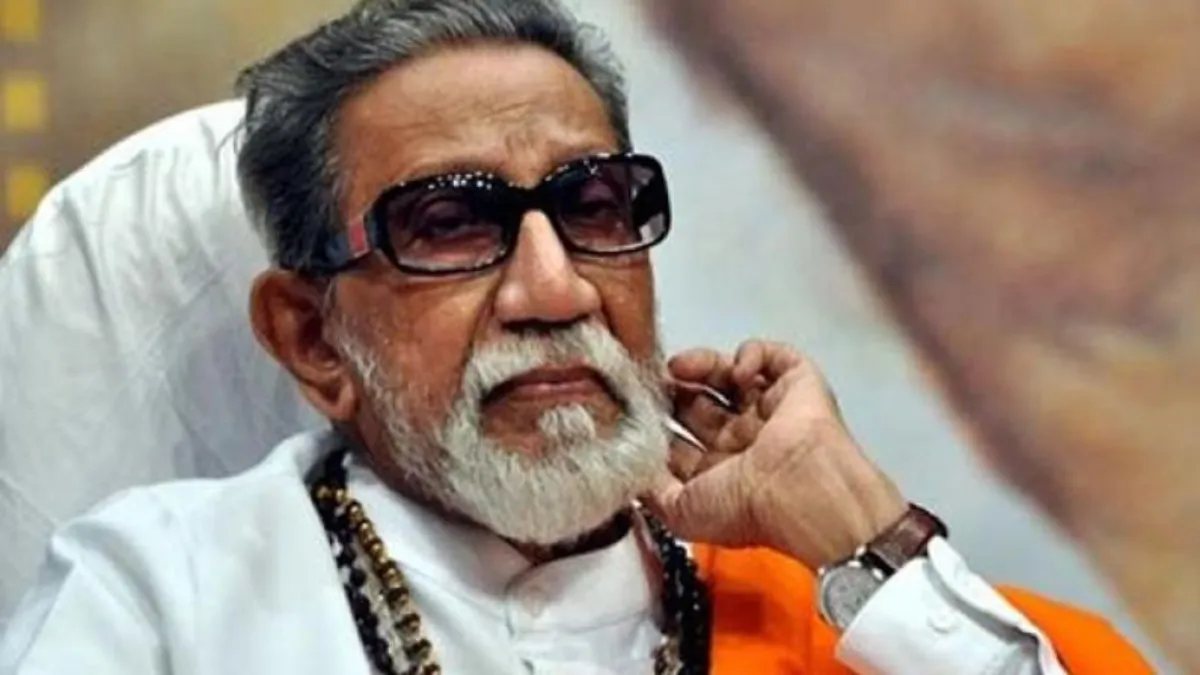Bal Thackeray birth anniversary: Balasaheb Thackeray's influence on Maharashtra's politics has been resonating for the last six-seven decades. Even more than 13 years after his death, he is still discussed in political circles. Born on 23 January 1926, Bal Thackeray's full name was Bal Keshav Thackeray, and people respectfully called him Balasaheb Thackeray. Bal Thackeray, who was a cartoonist in the early days of his career, gave a strong platform to the voice of Marathi and Hindu interests by founding the Shiv Sena. Throughout his life, Balasaheb took pride in his political journey, but there came a point when he was not only barred from contesting elections but also had his name removed from the voter list.
When Bal Thackeray was banned from contesting elections
In July 1999, on the recommendation of the Election Commission, then-President KR Narayanan imposed a six-year ban on Bal Thackeray from contesting elections. Thackeray was accused of breaching the Model Code of Conduct, particularly for making inflammatory speeches during the 1987 Maharashtra Assembly by-elections. He had allegedly sought votes on the basis of religion in support of Shiv Sena candidate Yashwant Ramesh Prabhu from the Vile Parle seat of Maharashtra.
Under Section 123 (3) of the Representation of the People Act, seeking votes based on religion, caste, race, or language is prohibited and punishable. As a result, the Election Commission recommended action against Thackeray to the President.
What did Balasaheb Thackeray say?
Bal Thackeray was accused of invoking Muslim names in his speeches and urging Hindu voters to support the Shiv Sena’s Hindu candidate. He reportedly stated, "If Shiv Sena candidate Ramesh Prabhu wins, it will not be the victory of Bal Thackeray, Shiv Sena, or Ramesh Prabhu, but of Hinduism." He also allegedly claimed that if mosques were dug up, Hindu temples would be found beneath them. Additionally, Balasaheb addressed the voters by asserting that a person with "Prabhu" in their name should be sent to the assembly, emphasising the election as a contest based on religion.
Following Thackeray's speech, Congress candidate Kunte, who was contesting against Prabhu, approached the Bombay High Court regarding this matter. He filed a case against Bal Thackeray and Ramesh Prabhu for violation of the Model Code of Conduct under Section 123(3) of the Representation of the People Act, 1951. The High Court issued a notice on that petition in 1989 to cancel Ramesh Prabhu's election victory due to violation of Section 123(3) of the Representation of the People Act, 1951. The High Court gave its verdict on this matter in 1991 and cancelled Prabhu's victory and also banned him from contesting elections for six years.
Matter reached Supreme Court and Election Commission
Prabhu appealed the High Court's decision in the Supreme Court, but he did not receive any relief there either. Meanwhile, Bal Thackeray was also convicted for his inflammatory speech. Since Thackeray was not holding any public office at the time, the Supreme Court granted the Election Commission the authority to decide on his punishment.
In 1998, the Election Commission formed a committee to recommend the punishment for Bal Thackeray. The committee suggested to the President that Thackeray be deprived of his right to vote. The President approved this recommendation, resulting in not only a six-year ban on Thackeray from contesting elections but also the removal of his name from the voter list.
Also Read: Was he really stabbed or acting: Nitesh Rane raises questions on attack on Saif Ali Khan
Also Read: Jalgaon: 12 dead after passengers jumped off from Pushpak Express, run over by Karnataka Express

